 |
 |
 |
 |
 |
 |
我們的研究課題著重於單光子和糾纏光子的產生,以及它們和物質交互作用的操控。單光子是一個光能量的波包,擁有無法被「複製」的量子性質;糾纏光子則為一對具有愛因斯坦稱為「如幽靈般的遠距離作用力」的光子。由於它們特殊的量子性質,單光子和糾纏光子為實現量子計算、量子通訊、或量子傳輸的重要元件,也是了解量子力學的關鍵。
我們希望透過了解並控制單光子和糾纏光子的特性,發展其應用性,並研究光子系統和其他物理系統的相似處。我們使用的材料系統包含固態系統、半導體系統、或冷原子系統,所用的實驗方法以光學和雷射為主。我們也發展理論模型預測並解釋實驗結果。這是一個應用及基礎兼具的物理研究領域。
Our research is
focused on generating single and entangled photons and manipulating the
photon-matter interaction. Single photons are wavepackets of light
energy quanta and no-cloning property. Entangled photons, on the other
hand, are photon pairs with “spooky action at a distance” quoted by
Einstein. With unique quantum properties, they are both essential to
realizing quantum computation, quantum communication, and quantum
teleportation, and to understanding quantum mechanics.
We seek to develop applications with single and entangled photons and to
study the analogue between the photonic system and other physical
systems by manipulating their quantum property. We use optical methods
and lasers in experiments and build theoretical models to explain our
observations. Our material systems include solid-state, semiconductor,
or cold atom systems. This research area leads to applications as well
as fundamental interests.

Ultrashort single photons on a chip
We demonstrates for the first time the fluctuation-driven parametric down-conversion in the optical regime and on a chip, which enables the observation of the hallmark of quantum fluctuation (the asymmetric Hong-Ou-Mandel dip) and the manipulation of single photons with Langevin noise. By manipulating the loss inherently tied to quantum fluctuation, we also demonstrate a novel way of realizing ultrashort single photons towards the single-cycle regime, which finds potential applications in nonclassical metrology and large bandwidth quantum information processing.
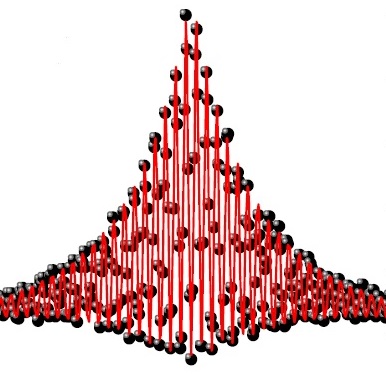
Ultrabright Single and Entangled Photons with Sub-MHz Bandwidth
Bright single and entangled photons with narrow bandwidths are essential to long-distance quantum communication and linear optical quantum computing. Our innovative experimental approach enables the generation of biphotons with a sub-MHz bandwidth, a record spectral brightness, and a temporally symmetric wave packet in a two-level atomic ensemble. The strong correlation of the biphotons also enables the first observation of sub-MHz-linewidth single photons in such systems. This is made possible by manipulating the spontaneous four-wave mixing with a single-laser pump scheme at moderate optical depth.
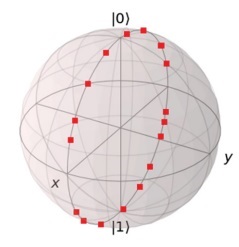
Quantum Computing Using One Photon in 32 Dimensions
Photonics has been a promising platform for implementing quantum computing owing to its scalability and robustness. In our latest work, we develop a novel way of encoding information in 32 time bins or dimensions of a single photon. By manipulating the high-dimensional photon in a single fiber loop, we realized the compiled version of Shor’s algorithm using only one photon. Our work demonstrates the powerful information-processing capacity of a high-dimensional quantum system for complex quantum information tasks.

Quantum Key Distribution with Nearly Perfect Key Creation Efficiency
The random choices of the measurement basis in quantum key distribution (QKD) usually result in low key creation efficiency. In our work, by preparing each photon in 50 time slots, we demonstrate the differential-phase-shift QKD between two Universities with a key creation efficiency of 97%. Our work shows that the practical QKD can benefit from the narrowband single photons with controllable waveforms.
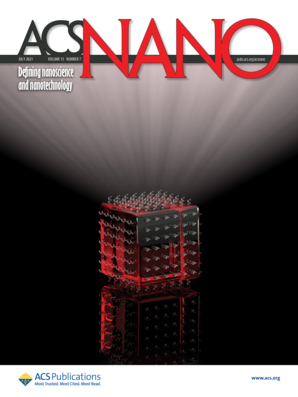
Ultrastable Quantum Emitter with Self-Healing Capability
Collaborating with Prof. Hao-Wu Lin, we have demonstrated optically ultrastable single-photon emitters at room temperature using the spray-synthesized CsPI3 perovskite quantum dots (PQDs). The high crystallinity and good ligand encapsulation of our PQDs enable the quantum emitters to display high brightness and high purity under continuous excitation over 24 hours. Moreover, the quantum emitters exhibit the capability of self-healing to restore their high brightness at high excitation power. The generation rate of 9×106 s-1 under continuous excitation is also the highest reported thus far. Our work shows that the spray-synthesized PQDs have great potentials for the quantum technologies.
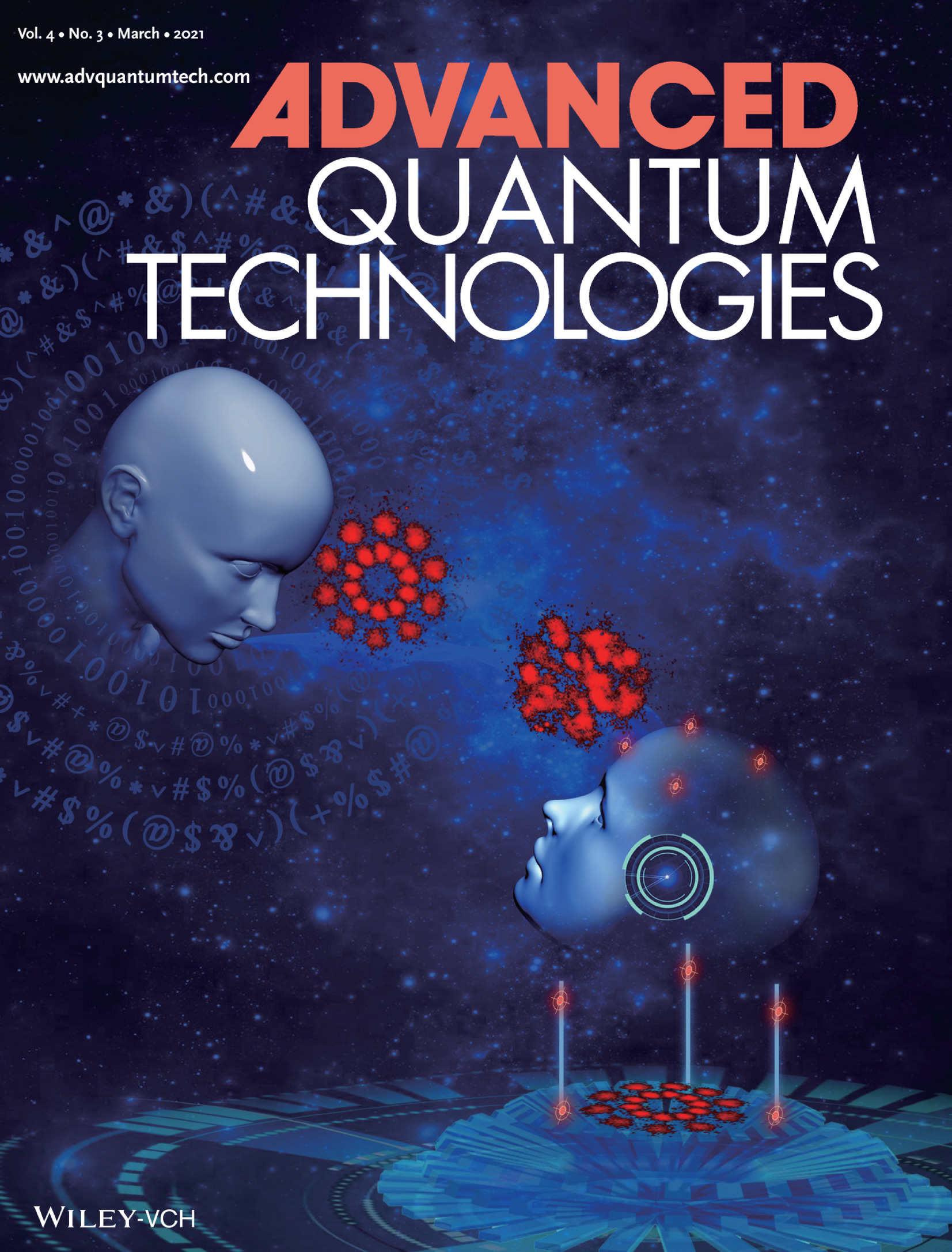
Purification of Single and Entangled Photons by Wavepacket Shaping
In this Review article, we review our works on applying the wavepacket shaping, an emerging quantum optics tool to manipulate the single- and entangled- photon wavefunctions, to purify single and entangled photons. Single and entangled photons lie at the heart of photonic quantum technologies, whose optimal performances are normally reached when the purity of the single or entangled photons is high. However, the multiphoton emission, dissipation, and decoherence in practical realizations always lead to the degradation of the single- and entangled- photon quality. The purification of single or entangled photons is thus valuable to restore the quantum states and enhance the performance of quantum technologies.
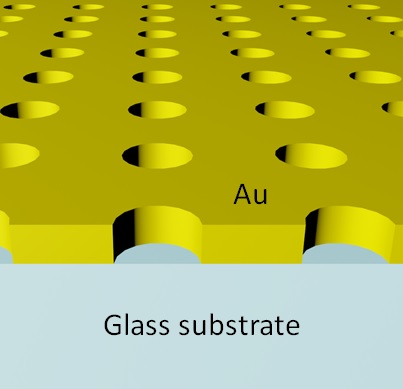
Time-Resolved Detection of Photon-Surface-Plasmon Coupling
The interplay of nonclassical light and surface plasmons has attracted considerable attention due to fundamental interests and potential applications. To gain more insight into the quantum nature of the photon–surface-plasmon coupling, we demonstrated the time-resolved detection of the coupling at the single quanta level. We also realized single optical plasmons with programmable wavepacket. The time-resolved detection and coherent control of single optical plasmons can offer new opportunities to study and control the light-matter interaction at the nanoscale.
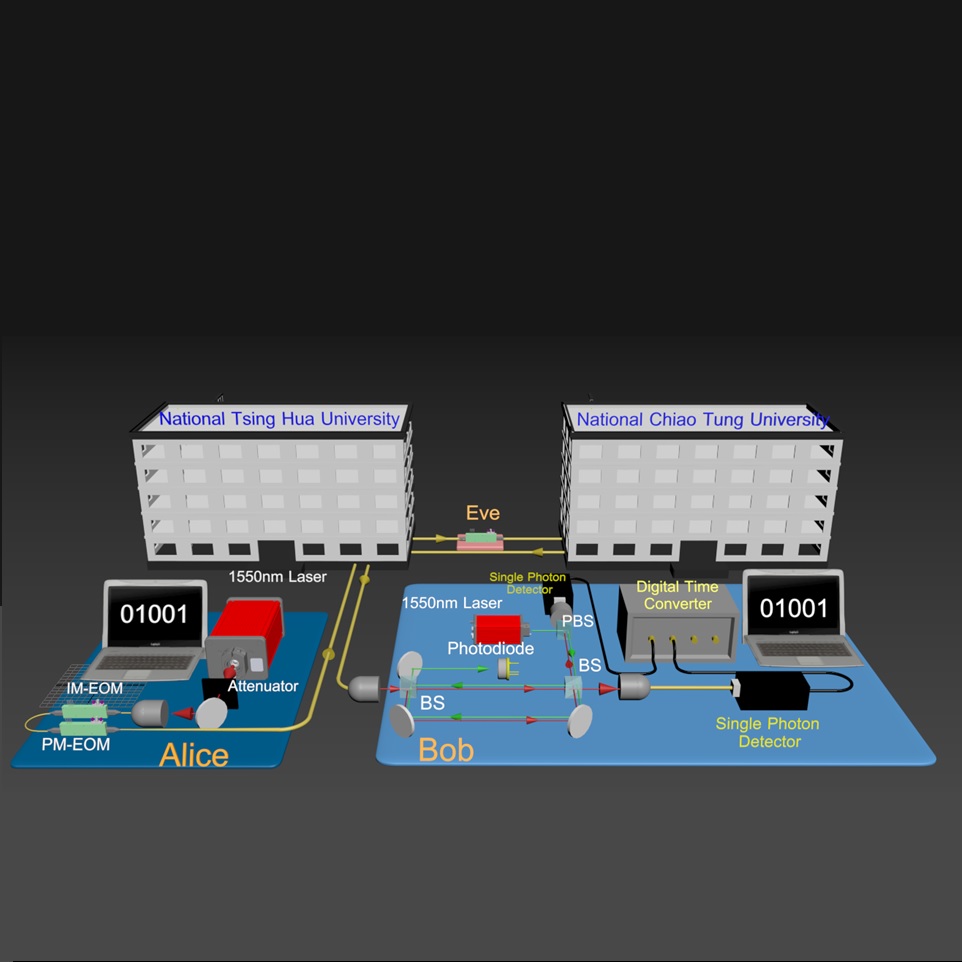
Field Test of Quantum Key Distribution
Using an optical fiber link between National Tsing Hua University and National Chiao Tung University, we recently demonstrated Taiwan's first outdoor quantum key distribution (QKD). Secret keys are generated by sending and measuring single photons encoded with bits 0 and 1, with the key creation efficiency boosted up to 90% using the DPS protocol. Encrypted communication with these keys promises unconditional security based on the laws of physics and is also impossible for eavesdroppers to keep a transcript of communication.

Revival of Quantum Interference, Entanglement, and Nonlocality
Quantum interference and entanglement, apart from the fundamental interest, are at the heart of quantum computing and quantum communication. However, these quantum properties are easily degraded by the imperfections or limitations of the experiments. By manipulating the quantum wavepacket, we demonstrate the revival of quantum interference, entanglement, and nonlocality that would otherwise be destroyed by the distinguishability of the photons. Our study shows that these quantum features can achieve full recovery if the wavepacket manipulation is properly designed.
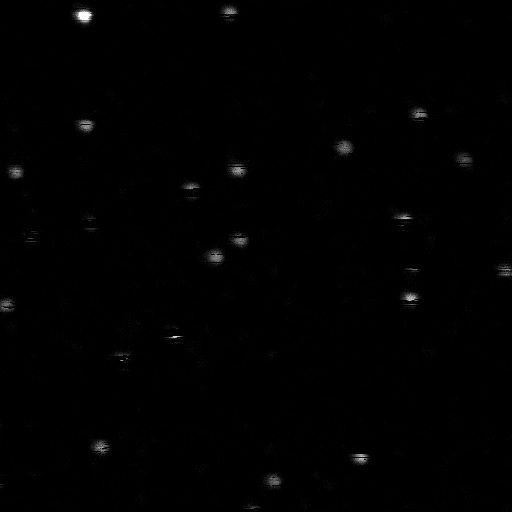
Shaping and Purifying Single Photons from Semiconductor Nanocrystals
Colloidal quantum dots (or semiconductor nanocrystals) are promising single-photon emitters at room temperature. However, their single-photon purity is poor due to the spectrally broad bi-exciton emission. We demonstrate single-photon purification by manipulating the temporal envelope of the single photons. The purified single photons have a purity comparable to their cryogenic-temperature counterparts. Moreover, the single-photon purity does not vary with the pumping power or between different quantum dots.
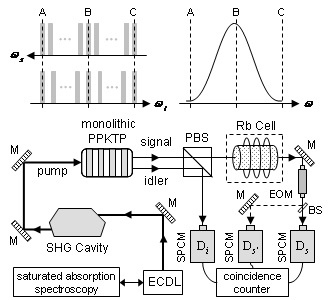
Light-Matter Interaction at Single-Photon Level
Efficient light-matter interaction at the single-photon level is essential to quantum computation and quantum communication. Such interaction requires single photons of subnatural linewidth and high spectral brightness. We demonstrate a subnatural-linewidth single-photon source with the highest spectral brightness reported to date. The interaction between the single photons and atoms is also demonstrated by the controlled absorption of the single photons in an atomic vapor.